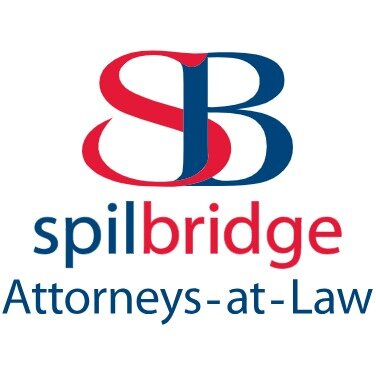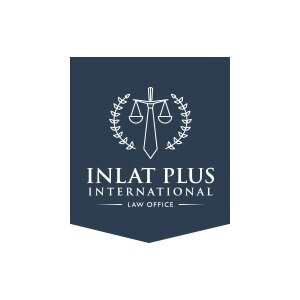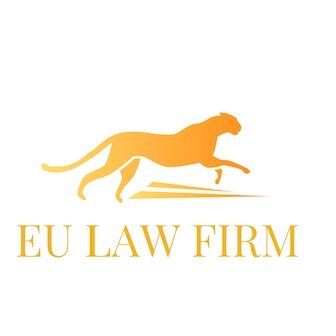Best Restructuring & Insolvency Lawyers in Riga
Share your needs with us, get contacted by law firms.
Free. Takes 2 min.
List of the best lawyers in Riga, Latvia
About Restructuring & Insolvency Law in Riga, Latvia
Restructuring and insolvency law in Riga, Latvia provides a legal framework to address situations where individuals or companies are unable to meet their financial obligations. The primary focus is to either restructure the debts to allow for continued operations or, if that is not possible, to initiate insolvency proceedings leading to the liquidation or sale of assets. Riga, as the capital and largest city of Latvia, is home to a significant number of businesses and legal professionals experienced in navigating these difficult financial situations. Latvian law strives to balance the interests of creditors and debtors while maintaining an efficient and fair process.
Why You May Need a Lawyer
People and companies often seek legal advice in restructuring and insolvency situations for various reasons. Here are some common scenarios:
- Businesses facing overwhelming debt obligations and seeking options to avoid bankruptcy.
- Creditors looking to recover outstanding debts from insolvent companies or individuals.
- Companies needing to draft and negotiate restructuring plans with creditors.
- Individuals seeking to understand their rights and obligations if declared insolvent.
- Businesses undergoing reorganization to continue operations while repaying debts.
- Directors and shareholders requiring advice on liability and risk minimization.
- Foreign investors needing help navigating Latvian insolvency procedures.
- Employees concerned about job security or wage recovery when their employer is insolvent.
Legal professionals can help interpret complex procedures, ensure compliance with regulations, protect your interests, and improve the chances of a favorable outcome.
Local Laws Overview
Latvia has a comprehensive legal framework governing restructuring and insolvency, largely regulated by the Insolvency Law of the Republic of Latvia. Key aspects include:
- Insolvency Proceedings: Initiated when a natural or legal person is unable to meet debt obligations. For legal entities, criteria include overdue debts exceeding a specific threshold and failure to pay taxes or wages.
- Restructuring: Businesses in temporary financial difficulty may apply for reorganization. This allows companies to restructure their debts and operations under court supervision, usually by agreeing a payment plan with creditors.
- Out-of-Court Settlement: Before initiating formal insolvency or restructuring, parties may seek to settle disputes or agree on payment rescheduling without court intervention.
- Asset Liquidation: If restructuring is not possible, insolvency may lead to liquidation, where assets are sold to repay creditors according to a statutory priority list.
- Role of the Insolvency Administrator: A court-appointed professional manages asset distribution, creditor meetings, and ensures legal compliance throughout the process.
- Creditor Rights: Both secured and unsecured creditors have defined rights and protections, with secured creditors often having priority.
- Director Liability: Company directors may be held personally liable for failing to file for insolvency in a timely manner or for fraudulent activities.
Latvia is also harmonizing its insolvency regulations with broader European Union standards, ensuring cross-border recognition of procedures and protections for international creditors.
Frequently Asked Questions
What is the difference between restructuring and insolvency?
Restructuring refers to a process by which a financially distressed but potentially viable business reorganizes its debts and operations to avoid insolvency. Insolvency, on the other hand, occurs when a person or entity is unable to pay debts as they become due and may lead to formal proceedings to liquidate assets or approve payment plans.
Who can initiate insolvency proceedings in Latvia?
Insolvency proceedings can be initiated by the debtor, creditors, or, in the case of legal entities, by certain state institutions if obligations such as taxes or social contributions remain unpaid.
How long does the insolvency process usually take?
The timeframe varies depending on the complexity of the case, the number of creditors involved, and the nature of the assets. Personal insolvency can take several months, while complex corporate cases may last a few years.
What happens to company assets during insolvency?
Company assets are managed by the insolvency administrator, who is responsible for securing, valuing, and selling them. The proceeds are distributed to creditors based on the statutory order of priority.
Can directors of an insolvent company be held personally liable?
Yes, if directors fail to initiate insolvency in a timely manner or commit acts of fraud or gross negligence, they may be held personally liable for the company’s debts.
Will employees lose their jobs if their employer goes insolvent?
In most cases, insolvency leads to job loss, but employees are recognized as priority creditors. There are also state guarantee funds that may cover unpaid wages up to a certain limit.
Is it possible to restructure debts without court involvement?
Yes, out-of-court settlements and private agreements can be reached between creditors and the debtor. However, court approval is required for formal restructuring procedures that provide broader legal protection.
What priority do secured creditors have in insolvency?
Secured creditors, such as those holding mortgages or pledges over assets, are usually paid first from the proceeds of the assets to which their security relates, ahead of unsecured creditors.
What are the consequences of bankruptcy for private individuals?
Bankruptcy proceedings for individuals can result in the liquidation of personal assets to satisfy debts. However, after successful completion of bankruptcy proceedings, most remaining debts are discharged, offering a chance for financial recovery.
Can insolvency proceedings be challenged or appealed?
Yes, parties involved can challenge or appeal decisions regarding insolvency and restructuring before a higher court within certain deadlines prescribed by law.
Additional Resources
For further guidance and assistance regarding restructuring and insolvency in Riga, Latvia, the following organizations and resources may be helpful:
- Insolvency Control Service (Insolvency Administration): The state authority overseeing insolvency matters, providing official information and supervising administrators.
- Latvian Bar Association: Offers resources for finding qualified attorneys specializing in insolvency law.
- Enterprise Register of Latvia: Maintains records on companies and their insolvency status.
- State Revenue Service: Provides information and support on tax-related issues during insolvency or restructuring.
- European e-Justice Portal: Offers EU-wide information about cross-border insolvency procedures.
It is advisable to seek advice from a qualified insolvency or restructuring lawyer for your specific case.
Next Steps
If you find yourself or your business in financial distress in Riga, Latvia, consider the following steps:
- Assess your financial situation carefully and gather all relevant documentation regarding debts and assets.
- Contact a licensed restructuring or insolvency lawyer who understands local legislation and court practices.
- Discuss all available options, including out-of-court settlements, restructuring, or formal insolvency proceedings.
- Ensure you act quickly, as delays may worsen your position or trigger additional liabilities.
- Follow your lawyer's guidance to comply with regulatory requirements and protect your interests throughout the process.
- Keep communication open with your creditors, employees, and stakeholders to maintain trust during the proceedings.
Legal assistance is crucial for navigating the complexities of restructuring and insolvency and can help you achieve the best possible outcome in challenging circumstances.
Lawzana helps you find the best lawyers and law firms in Riga through a curated and pre-screened list of qualified legal professionals. Our platform offers rankings and detailed profiles of attorneys and law firms, allowing you to compare based on practice areas, including Restructuring & Insolvency, experience, and client feedback.
Each profile includes a description of the firm's areas of practice, client reviews, team members and partners, year of establishment, spoken languages, office locations, contact information, social media presence, and any published articles or resources. Most firms on our platform speak English and are experienced in both local and international legal matters.
Get a quote from top-rated law firms in Riga, Latvia — quickly, securely, and without unnecessary hassle.
Disclaimer:
The information provided on this page is for general informational purposes only and does not constitute legal advice. While we strive to ensure the accuracy and relevance of the content, legal information may change over time, and interpretations of the law can vary. You should always consult with a qualified legal professional for advice specific to your situation.
We disclaim all liability for actions taken or not taken based on the content of this page. If you believe any information is incorrect or outdated, please contact us, and we will review and update it where appropriate.
















